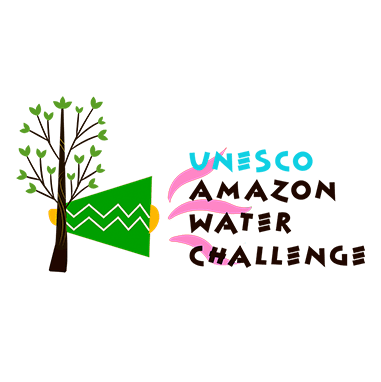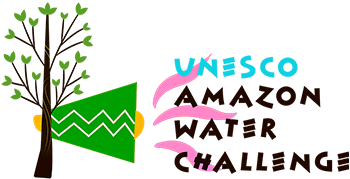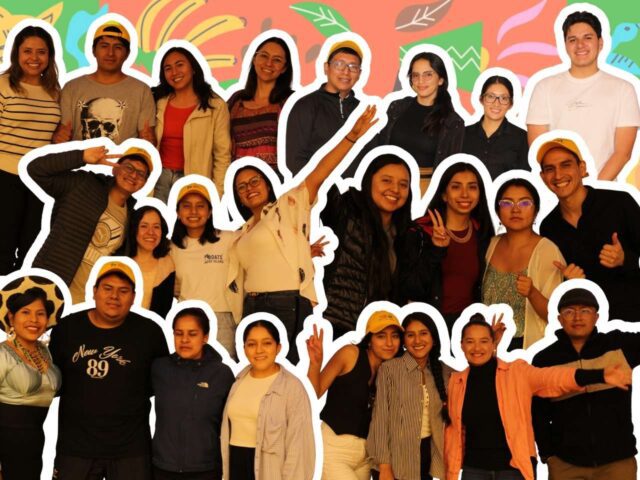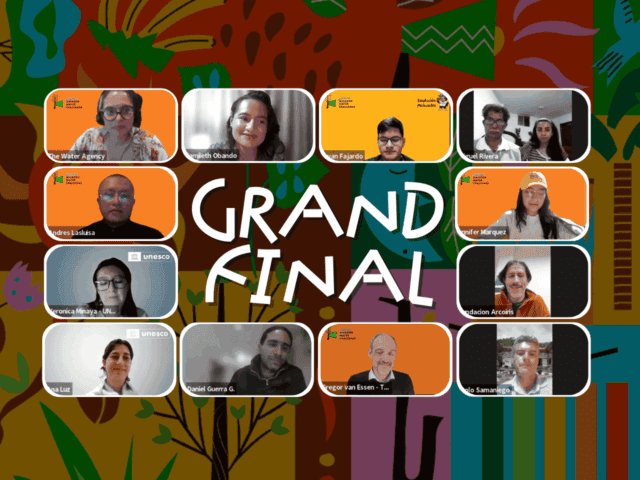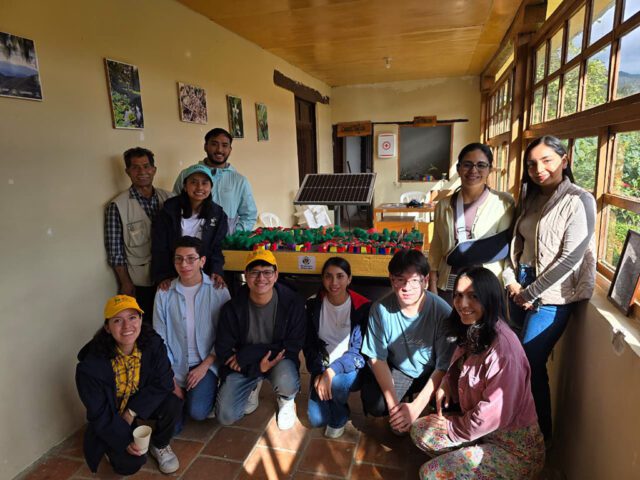After weeks of training, field visits, mentoring, and solution development, the first phase of the UNESCO Amazon Water Resilience Challenge – Ecuador 2025 reached an important milestone. The six participating teams submitted their final proposals, building on everything they learned during the program. These proposals were then evaluated by a panel of experts based on the official selection criteria. After a careful review, three winning teams were selected to proceed with pilot implementation. To properly wrap up the first phase of the program and announce the winners, an interactive online session was organised, bringing all participants together to reflect on the journey, celebrate the achievements, and share the next steps.
The session started with welcoming remarks, followed by a video recap, looking back at the highlights of the program. To bring back memories in a light-hearted way, the group took part in a fun activity, testing their knowledge about the locations visited, the experts they met, and the activities completed along the way. Participants also shared their reflections in a feedback poll, expressing what they liked most and what they learned during this first phase.
The highlight of the session was the announcement of the three winning teams, selected for their innovative, practical, and community-focused water solutions. These teams will each receive seed funding to implement their pilot projects between June and July 2025 in Loja, El Tambo, or Zumbi. Here are our winning teams and what the panel of experts shared about each of them:
Group 5 – Farming for Water (Chapamarca, El Tambo)
The team was recognized for their inspiring commitment to building water resilience through sustainable farming practices. Their proposal combines education, hands-on demonstration, and community evaluation to improve water use efficiency, including the use of hydrogel and agroecological techniques. The project is well-structured and shows real potential for impact in similar rural communities. The jury encouraged the team to refine their problem definition, strengthen the logistics of implementing hydrogel use, and develop materials to support knowledge transfer.
Group 2 – EcoAcción Malacatos: El Río Nos Habla (Loja)
This project was praised for its creative, community-driven approach to environmental education. Focusing on reducing waste in the Malacatos River, the team designed interactive tools like a model of the river, community signs, and participatory workshops to raise awareness and inspire change. The project stood out for its strong communication strategy and stakeholder engagement. The jury suggested deepening the problem analysis and further clarifying how the project will generate long-term impact in the target neighborhood of La Argelia.
Group 1 – Zumbi Resiliente: Agua para la Vida (Zumbi, Amazonia side)
Addressing the urgent issue of unreliable drinking water in Playas de Cuje, this team proposed a practical solution combining green and grey infrastructure: reforestation and low-cost sedimentation chambers. Their plan uses data, mapping, and a phased approach for sustainable impact. The jury recommended timeline adjustments and stronger community involvement, but commended the project’s technical quality and clear understanding of the local context.
Congratulations and Next Steps
Congratulations to the three winning teams for their hard work, creativity, and commitment to building water resilience in their communities. We also want to sincerely acknowledge the dedication and effort of all teams who took part in this journey. Every team contributed valuable ideas and demonstrated strong collaboration, and we hope the experience helped build your skills, knowledge, and networks for the future.
The three winning teams will now move forward with pilot implementation, bringing their solutions to life over the coming months in Loja, El Tambo, and Zumbi. Stay tuned as we follow their progress and see how these projects create real impact on the ground.
